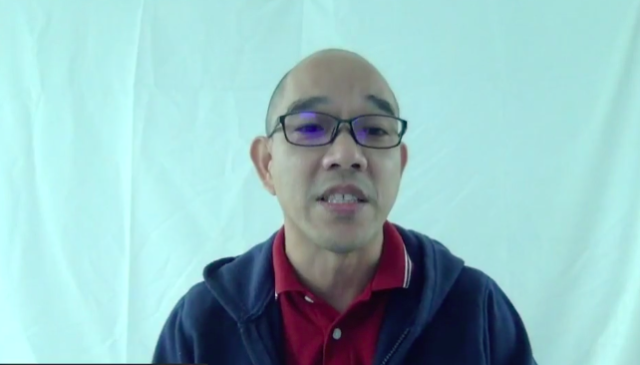Ombudsman denies appeal of ex-DBM exec Lao on Pharmally case

Former PS-DBM chief Usec. Christopher Lloyd Lao loses his appeal for a motion for reconsideration over the Pharmally issue. FILE PHOTO
MANILA, Philippines — The Office of the Ombudsman has denied the motion for reconsideration filed by former Department of Budget and Management (DBM) official Lloyd Christopher Lao regarding a previous ruling on the graft complaints filed regarding the Pharmally issue.
In an 18-page order signed by Ombudsman Samuel Martires last May 2, Lao contested the recommendation of graft raps against them, saying Pharmally Pharmaceutical Corp. was picked as the protective equipment supplier during the pandemic because other companies had a smaller paid-up capital.
At the Senate hearings of the 18th Congress, Lao was questioned why he, as head of the Procurement Service of the DBM (PS-DBM), picked Pharmally despite its small paid-up capital of P625,000. Lao specifically mentioned One Top Medical System Resources and Biosite Medical Instruments, Inc. as companies with smaller paid-up capitals to prove that he and PS-DBM did not act with partiality.
However, the Ombudsman noted that Section 8 of Republic Act No. 1991 or the Foreign Investment Act of 1991, specifically states that “small and medium-sized domestic market enterprises with paid-in equity capital less than the equivalent of five hundred thousand US dollars (US$500,000) are reserved for Philippine nationals.
“A partially nationalized corporation cannot hire any foreigner to intervene in its management, operation, administration, control, whether as an officer, employee, or laborer therein, with or without remuneration, except as technical personnel whose employment may be specifically authorized by the Secretary of Justice,” the Ombudsman’s order read.
Article continues after this advertisementSince Pharmally’s paid-up capital amounts to only P625,000, or, as the Ombudsman said, roughly US12,035 should be reserved for Filipinos only. However, Lao was reminded that several officials of Pharmally—particularly head Huang Tzu Yen and a certain Lin Weixiong—appeared to be foreigners.
Article continues after this advertisement“Respondent Huang is a Singaporean citizen who, apart from being the largest stockholder and a member of Pharmally’s board of directors, also serves as the president of said corporation. This runs counter to the ban under Section 2-A of the Anti-Dummy Law which prohibits foreigners from being elected or appointed to managerial positions as president, vice president, treasurer, secretary, etc.,” the Ombudsman said.
“The same anomaly can also be observed relative to respondent Lin Weixong, who declared himself to be a Chinese citizen. Despite his obvious disqualification, he allowed himself to be designated/ elected unanimously by the board of directors of Pharmally to be an officer of the corporation,” it added.
The Ombudsman also noticed that the funds for Pharmally came from PS-DBM transactions.
“Its financial statements indicate that prior to the 2020 dealings with the PS-DBM, the company had no business activity from September to December 2019. For the year ended 31 December 2019, Pharmally even incurred a net loss of P25,550.00,” it said.
“But in 2020, when PS-DBM irregularly awarded procurement contracts to Pharmally, the corporation earned a net taxable income of P318,337,099.00 with a declared net sales/ revenues/ receipts/ fees of P7,485,401,046.00,” it added.
Last August, the Ombudsman recommended filing graft cases against PS-DBM officials and Pharmally executives due to their involvement in allegedly anomalous contracts.
READ: Christopher Lao, Dargani siblings on Ombudsman’s top list for graft raps
Pharmally was dragged into the spotlight during the height of the COVID-19 pandemic after both the House of Representatives and the Senate investigated the Commission on Audit’s report of the Department of Health (DOH). The report showed that P42 billion of the P67.32 billion COVID-19 funds had deficiencies, including DOH transfers to the PS-DBM.
PS-DBM then tapped Pharmally to supply the health equipment, signing an P8.7 billion contract despite the company having a small paid-up capital.
PS-DBM bought face masks, face shields, and other personal protective equipment (PPE) from Pharmally, which lawmakers deemed overpriced.
READ: COA finds DOH lacking in managing P67.32-B COVID funds
During the hearings, it was revealed that Pharmally sold masks to the government at P28 per piece while local manufacturers sold them at P13 per piece.
However, government workers said that the prices of the emergency procurement made with Pharmally were high because of the supply shortage during the start of the pandemic.